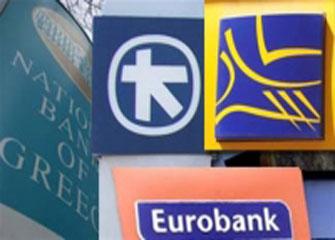ATHENS — In a sign that political uncertainty in Greece has shaken the country’s fragile economy, two of Greece’s four main banks are seeking access to emergency funds from the European Central Bank, a Greek official said on Friday.
Executives at Eurobank and Alpha Bank, the country’s third- and fourth-largest banks, confirmed they were the ones making the request, citing “preventive” reasons. Those acknowledgments followed a report in the daily newspaper Kathimerini that said the lenders had sought 5 billion euros, or $5.8 billion, between them and that other banks were expected to make requests in the coming days.
The banks’ requests comes before Greek elections set for Jan. 25, when a change of government could cast new uncertainty on the country’s ability to meet the terms of its international bailout program.
Some €3 billion has been withdrawn from Greek banks in the last two months. Speculation in the Greek news media about a potential bank run prompted the country’s central bank to say last week that the situation was under control.
The Greek official, who is from the country’s central bank and spoke on the customary condition of anonymity, said the banks’ requests would be discussed by the European Central Bank, one of Greece’s three international creditors, at its Governing Council meeting in Frankfurt on Thursday.
The European Central Bank declined to comment on Friday.
Officially, the type of aid being sought — known as emergency liquidity assistance — is the responsibility of national central banks in the eurozone, which also assume the risk if banks are later unable to repay the money. But national central banks are required to report to the European Central Bank when they grant assistance, and its Governing Council has the option to block the aid.
Theoretically, emergency liquidity assistance can be granted only to banks that are solvent. But the European Central Bank faced criticism in recent years for allowing assistance to banks in Cyprus, for example, that later failed.
Typically, banks turn to emergency liquidity assistance when they run out of assets, like government bonds that they can use as collateral to borrow money at more favorable rates from the European Central Bank. Greek banks already received such assistance in 2012.
For the Greek banks, apart from an increased outflow of deposits as savers get jittery about the country’s economic outlook, the lenders’ liquidity has also come under pressure because of the previous government’s frequent issuing of short-term debt that it leaned on the banks to buy.
Greek banks have drastically reduced their borrowing from the country’s central bank since June 2012, when the nation’s debt crisis was threatening to force Greece from the eurozone. At that point, just before critical elections, the central bank’s borrowing had reached around €130 billion.
But Greek banks still rely on money from the European Central Bank, which in league with the European Commission and International Monetary Fund, has extended Greece two bailouts worth €240 billion since 2010. Those loans were in exchange for a tough austerity program.
But the money now being sought by the Greek banks would be classified as emergency liquidity assistance, which carries a much higher interest rate — 1.55 percent — compared with the rate of only 0.05 percent for the European Central Bank’s regular lending to commercial banks.
The European Central Bank has warned that access to additional financing after the end of February, when the European part of Greece’s foreign bailout program ends, will depend on the completion of suspended bailout talks with creditors.
The prospects for those talks are unclear. The Greek leftist opposition party, Syriza, which is widely expected to win the Jan. 25 election, has said it will seek a renegotiation of what it considers onerous terms of Greece’s bailouts. Government cuts have slashed Greek incomes by a third and pushed unemployment above 25 percent. Syriza has called for a partial write-down of the country’s debt.
The European Central Bank’s president, Mario Draghi, has made clear that the absence of a deal between Greece and its creditors means no guarantee for central bank cash.
Syriza has suggested that the country could avoid a cash problem by issuing short-term debt, for local banks to buy, and by accessing treasury reserves. But the Greek finance minister, Gikas Hardouvelis, has accused the leftists of complacency about the country’s financial obligations.









